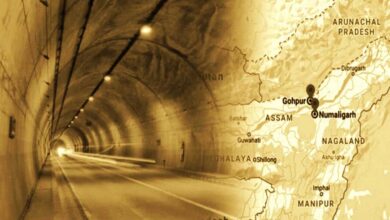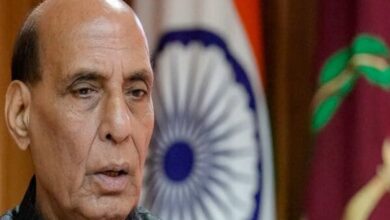Is The National Quantum Mission, Approved By The Cabinet, Worth $6,003 Crores?
In this decade, the Union Cabinet approved a total outlay of Rs 6,003 crore for making India a quantum computing powerhouse.

Is The National Quantum Mission, Approved By the Cabinet, worth $6,003 crores?
Anurag Thakur, the Union Minister for Information and Broadcasting, announced Wednesday that his goal is to ‘seed, nurture, and scale’ scientific and industrial research.
Companies in the IT sector and startups in AI welcomed the move. With investments in infrastructure, labs and testbeds, the National Quantum Mission will allow Indian industry and academia to take a leadership position in a strategic technology area, according to K Ananth Krishnan, Tata Consultancy Services Ltd.’s chief technology officer.
With the help of software development kits and algorithms, India’s largest IT services company is exploring uses for quantum computing. Krishnan also said they were anchoring an ecosystem including academia, deep tech, and independent research institutes.

As a Mumbai-based AI startup, Fractal Analytics Inc. is already collaborating with the Ministry of Information Technology. It said the new investment increases India’s quantum computing drive’s opportunities. Fractal’s lead researcher and architect of quantum computing, Prateek Jain, believes collaboration with other institutions and businesses may be possible.
The fact that Fractal has already invested and developed capabilities in quantum computing on the same intersection as Quantum Generative AI makes us well and uniquely positioned to contribute to the advancement of quantum computing technologies.
In January, Maneev Chandrasekhar, Minister of State for Electronics and IT, had stated that quantum computing would be at the core of India’s ‘techade.’ Prime Minister Narendra Modi‘s vision is to develop a tech ecosystem centred around India.

In a statement at the time, the minister said he was working with startups, laboratories and higher education institutions to create an innovation ecosystem.
The tech sector in India will grow and expand based on quantum computing. The National Quantum Mission’s goal by the end of this decade is to develop quantum computers with between 50 and 1,000 physical qubits.
This program will also help develop quantum materials-superconductors, semiconductors, topological materials-for quantum devices, and magnetometers for navigation, communication, and timing. Among the benefits of the mission are the effects on communication, health, financial, and energy sectors, as well as drug development.
As a result, national priorities like Digital India, Make in India, Skill India, Standup India, Startup India, and Atmanirbhar Bharat have a great chance of flourishing.

The Cabinet has also approved a plan to install 10,000km of optic fibre cables by 2024-25 the National Highways Authority of India. It was announced on Wednesday that National Highways Logistics Management Ltd. would develop utility corridors along national highways for developing an optic fibre network.
It will allow telecom and internet services to be plugged-and-play or fibre on demand. The Delhi-Mumbai expressway project and the Hyderabad-Bengaluru highway project are finalising the allotment policy for the project.
Significance of the National Quantum Mission
Quantum technology is concerned with creating new technologies that use the unique properties of quantum systems by using the principles of quantum physics. Molecular manipulation and control involve manipulating and controlling particle behaviour at an atomic and subatomic level.
Many fields, including computing, cryptography, communications, and sensing, stand to benefit from quantum technology. India has gained a leading position in quantum technology due to the approval of the National Quantum Mission by the Union Cabinet earlier this year.
By accelerating progress in the field, India hopes to cement its status as an industry leader. The mission aims to develop quantum technology as a core industry to make India a leader in quantum technology and boost economic growth.
A total of more than six thousand crore rupees has been allocated for the mission. Missions will be conducted from 2023-24 to 2030-31. The mission will give India a quantum leap in the global arena, according to Minister of Science and Technology Jitendra Singh. In the United States, Canada, and France, quantum technology can be found.

Communications, health, finance, energy, drug design, and space applications will benefit from the National Quantum Mission. The mission aligns with national priorities as part of Digital India, Make in India, Skill India, Standup India, Startup India, and Self-Reliant India initiatives.
Quantum Technology research and development is the mission’s objective. The program aims to build a vibrant and innovative quantum technologies ecosystem. During the mission, quantum technology in India will be developed and expanded.




